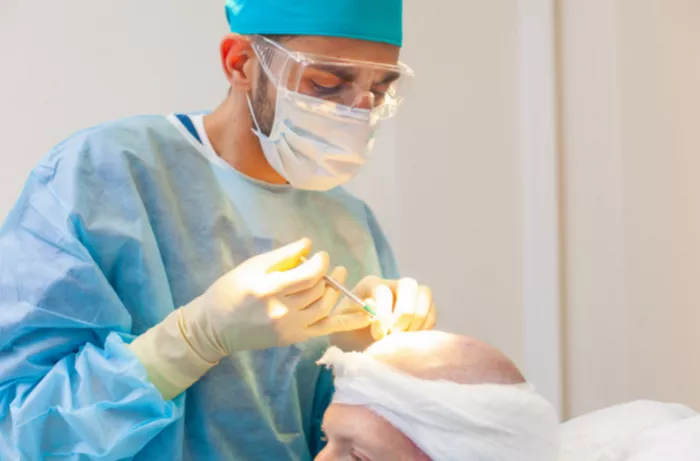Hair loss can be distressing, whether it results from improper use of hairpieces or underlying health conditions. Fortunately, there are several solutions available, including non-surgical options provided by licensed cosmetologists.
The market offers numerous treatments for hair loss, such as lasers, medications, and surgery. While effective, these methods do not always provide immediate results. For a quick transformation, many turn to cosmetologists who specialize in non-surgical hair replacement systems like toupees, wigs, and sewn-in braids.
Barbers and cosmetologists now receive training in these non-surgical techniques as part of their education. However, in the 1980s, hairstylists had to rely on their creativity and resourcefulness to meet clients’ needs. Although nonsurgical hair replacement certification is not mandatory, many practitioners pursue specialized training to enhance their skills.
Meleesa Brown-Freeman, owner of hair salons in Middletown and Baltimore, exemplifies this dedication. With over 30 years of experience, she has focused on providing non-surgical hair replacement services to women, men, and children.
In an interview with Delaware Online/The News Journal, Brown-Freeman shared her insights on this field. The interview has been edited for clarity.
What is a non-surgical hair replacement specialist?
I am a licensed cosmetologist in three states, certified in non-surgical hair replacement. This means I cannot perform any procedures involving needles. I customize hair enhancements like toppers, toupees, and lace wigs to cover bald areas, tailoring each solution to the individual’s needs.
How did you become a specialist in this area?
I started doing sew-in hair weaves in college in 1983. Although I initially pursued a degree in fashion design, I switched to cosmetology. In the 2000s, we didn’t have the advanced hairpieces we have today, so I had to be innovative, using my sewing skills to create realistic hair enhancements.
As my career progressed, I realized hair loss can result from medical conditions, not just styling issues. Helping clients with hair loss became my passion.
Do you help clients with medical-related hair loss?
Yes, I have worked with clients who lost hair due to autoimmune diseases, mental health conditions, and physical attacks. I also help children with alopecia who face bullying at school. Restoring their hair gives them confidence and joy.
For cancer patients, I create medical wigs or full lace units that can be removed at night. Lupus patients often have sensitive scalps, so I use wig grips instead of adhesives for their hair systems.
Does insurance cover this service?
Sometimes private insurance covers these services, and occasionally Medicaid, Medicare, and CareCredit will pay a portion.
How do you customize a hair enhancement?
I view the head as a canvas. Custom units involve taking a prefabricated hairpiece and making it look as natural as possible, considering the client’s hair texture, color, hairline, and personality. The goal is to make the hair enhancement blend seamlessly.
Any advice for those suffering from hair loss?
Don’t hesitate to seek professional help. Be open to the various services available to you.
What advice do you have for other practitioners?
Our industry needs more love and passion. Practitioners must take their craft seriously and maintain high standards of integrity. Doing so ensures we provide the best service to our clients and uphold the reputation of our industry.


